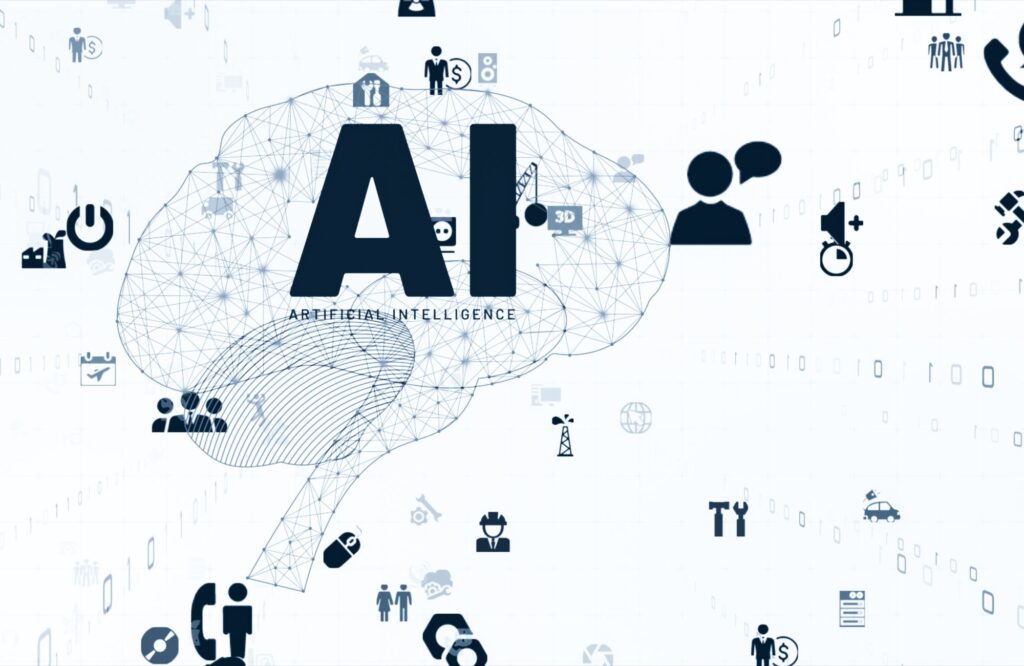Does ChatGPT Generated Text Hurt Your SEO? Here’s What You Need to Know
The rise of ChatGPT has sparked intense debate in the digital marketing world, particularly around its impact on SEO. As businesses rush to leverage AI for content creation, a crucial question emerges: could this technological advancement harm your search rankings? Let’s learn Does ChatGPT-Generated Text Hurt Your SEO?
The stakes are high. With content production costs rising and competition for search visibility fiercer than ever, the allure of AI-generated content is undeniable. Yet, the relationship between AI content and SEO performance isn’t straightforward, and the consequences of getting it wrong could be significant.
Understanding ChatGPT and SEO
The evolution of artificial intelligence has dramatically transformed the content creation landscape, with ChatGPT emerging as a groundbreaking tool for writers and marketers. To effectively leverage this technology for SEO purposes, it’s crucial to understand its capabilities and limitations within the context of search engine optimization.
What Makes ChatGPT Different
ChatGPT has revolutionized AI content generation through its sophisticated language processing capabilities that closely mimic human writing patterns. Unlike earlier AI writers who produced robotic text, ChatGPT creates content that can be remarkably human-like. It excels at:
– Generating coherent, contextually relevant content
– Adapting tone and style to match requirements
– Handling complex topics with reasonable accuracy
– Producing content at scale
However, it’s not without its drawbacks. The system:
– Can’t generate truly original insights
– May produce factually incorrect information
– Often creates generic, templated content
– Lacks real-world experience and expertise
Google’s Current Stance
Google’s view on AI-generated content has changed from skepticism to a more balanced approach, focusing on quality over how the content is made. This shift shows that AI tools can create valuable content when used correctly, with a focus on expertise and human oversight. Today, Google’s search algorithms prioritize content that is meaningful, purposeful and demonstrates authority, encouraging creators to ensure their AI-generated content meets high-quality standards and provides real value.
Detection and Analysis
Can Google Detect ChatGPT Content?
Whether Google can detect AI-generated content remains complex and somewhat controversial. While Google hasn’t officially confirmed any specific detection system, we need to understand several key points:
Current Detection Capabilities Google’s algorithms are sophisticated enough to identify certain patterns common in AI-generated text:
- Repetitive sentence structures
- Unnaturally perfect grammar
- Lack of deeper context
- Overly formulaic content patterns
However, as AI technology evolves, detection becomes increasingly challenging. Modern AI content blends seamlessly with human-written text, making traditional detection methods unreliable.
Content Quality Indicators
Rather than focusing solely on detection, Google emphasizes quality signals that apply to all content, regardless of its origin:
Engagement Metrics
- Time spent on page
- Bounce rate
- User interaction
- Social sharing
- Click-through rates
Content Depth Analysis
Google evaluates content depth through:
- Topic coverage completeness
- Original insights and analysis
- Supporting evidence and citations
- Practical examples and applications
- Updated information and timeliness
Red Flags That May Trigger Scrutiny
Several content characteristics can trigger lower rankings or reduced visibility in search results:
Superficial topic coverage: Google prefers detailed, thorough content.
Generic information usage: Search engines prioritize original, valuable content.
Missing expert insights: Content with expert insights ranks higher for authority.
Poor citation practices: Proper citations from reliable references improve the content’s authority.
Content inconsistencies: Inconsistent tone, style, or accuracy can confuse readers. Consistency and accuracy boost content quality.
Lack of examples: Without practical examples, content feels unhelpful. Real-world examples make content more relatable and valuable.
Outdated information: Up-to-date information improves content’s credibility and ranking.
Thin content markers: Short, shallow content provides little value. Google favors in-depth, detailed material.
Over-optimization signs: Excessive keyword use or SEO tricks can hurt rankings. Prioritizing readability and user intent is more effective.
Duplicate content elements: Repetitive or copied content gets penalized. Originality is key for higher visibility.
SEO Impact Analysis
Positive Effects
Content Benefits and Risks
The strategic implementation of ChatGPT in content creation presents both opportunities and challenges for SEO performance. Understanding these dynamics is crucial for developing an effective content strategy that maximizes benefits while minimizing potential drawbacks.
Content Scaling Benefits
Modern content demands require businesses to maintain a consistent online presence across multiple platforms and topics. ChatGPT offers remarkable scaling capabilities, enabling faster content production while maintaining consistency across various subjects and formats. This efficiency allows teams to focus on higher-value tasks while ensuring regular content updates and fresh material for their audience.
Efficiency Advantages
Time management becomes significantly more achievable with AI assistance in content creation. ChatGPT streamlines content planning by quickly generating drafts and responding to trending topics, freeing up valuable resources for strategic tasks. This enhanced efficiency enables marketing teams to maintain a consistent content schedule while allocating more time to creative and analytical work.
Quality Concerns
Despite its benefits, AI-generated content presents notable challenges in maintaining a distinct brand voice and expertise. The primary concern lies in the potential for generic content that lacks authentic insights and fails to showcase true industry expertise. Additionally, specialized topics often require deep domain knowledge that AI might oversimplify or misinterpret.
Ranking Implications
Search engine performance can be significantly impacted when relying heavily on AI-generated content. The most noticeable effects often appear in user engagement metrics, with shortened page views and increased bounce rates signaling potential content quality issues. Moreover, generic AI content typically struggles to attract natural backlinks, a crucial factor in building domain authority and improving search rankings.
Real-World Performance Analysis
Understanding how AI-generated content performs in real-world scenarios is crucial for developing effective content strategies. Recent industry studies and case analyses provide valuable insights into what works and what doesn’t in AI content implementation.
Success Factors
The most successful implementations of AI-generated content share common characteristics in their approach. High-performing content typically combines AI efficiency with substantial human expertise, while incorporating original research and personal insights to create unique, valuable content that resonates with both search engines and readers.
Warning Indicators
Monitoring key metrics helps identify potential issues before significantly impacting your SEO success. Warning signs often manifest through declining organic traffic patterns and reduced keyword rankings, while engagement metrics provide early indicators of content quality issues.
Strategic Implementation
Implementing AI content effectively requires a carefully structured approach that balances automation with human expertise. A well-planned strategy ensures your content maintains high quality while leveraging the efficiency of AI tools.
Content Optimization Framework
The foundation of successful AI content integration lies in thorough planning and execution. Your content development process should begin with clear objectives and audience understanding, followed by systematic content creation that combines AI efficiency with human expertise. Quality control measures ensure the final product meets all necessary standards and provides genuine value to your audience.
Risk Mitigation
Protecting your SEO performance requires consistent monitoring and quality assurance processes. Regular content audits, performance tracking, and thorough fact-checking help maintain high standards and prevent potential issues. Keep a close eye on key metrics like organic traffic trends, search rankings, and user engagement to ensure your content strategy remains effective.
Content Integration Strategy
Finding the right balance between AI and human input is crucial for content success. Use AI tools for initial research, basic outlines, and routine updates, while reserving human expertise for complex analysis, personal insights, and critical brand messaging. This balanced approach helps maintain content quality while maximizing efficiency.
Performance Management
Implement a systematic approach to monitoring and improving content performance. Track key metrics regularly and adjust your strategy based on data-driven insights. Remember that successful AI content integration requires ongoing optimization and refinement based on performance indicators.
Conclusion: Does ChatGPT-Generated Text Hurt Your SEO
The relationship between ChatGPT-generated content and SEO isn’t black and white. Success lies not in whether you use AI, but in how you use it. The key is striking the right balance between efficiency and quality, automation and human expertise.
At Chit Chat Marketing, we specialize in comprehensive SEO, content marketing, and digital strategy services that help businesses thrive online. Our team of experts provides tailored solutions for AI content integration, search optimization, and digital marketing campaigns while ensuring your search rankings remain strong and your content stands out in an increasingly competitive digital space.
FAQ: Does ChatGPT-Generated Text Hurt Your SEO
Will using ChatGPT automatically hurt my rankings?
No, not automatically. Google focuses on content quality rather than creation method. Poor-quality content will hurt rankings regardless of how it’s created, while high-quality, valuable content can perform well even if AI-assisted.
How can I safely use AI-generated content?
Follow these guidelines:
- Use AI for initial drafts only
- Add expert insights and original research
- Ensure thorough human editing
- Verify all facts and claims
- Monitor performance metrics
What percentage of my content can be AI-generated?
There’s no fixed percentage but focus on value rather than volume. Every piece should be thoroughly edited, enhanced with expertise, and provide unique value to your audience.




